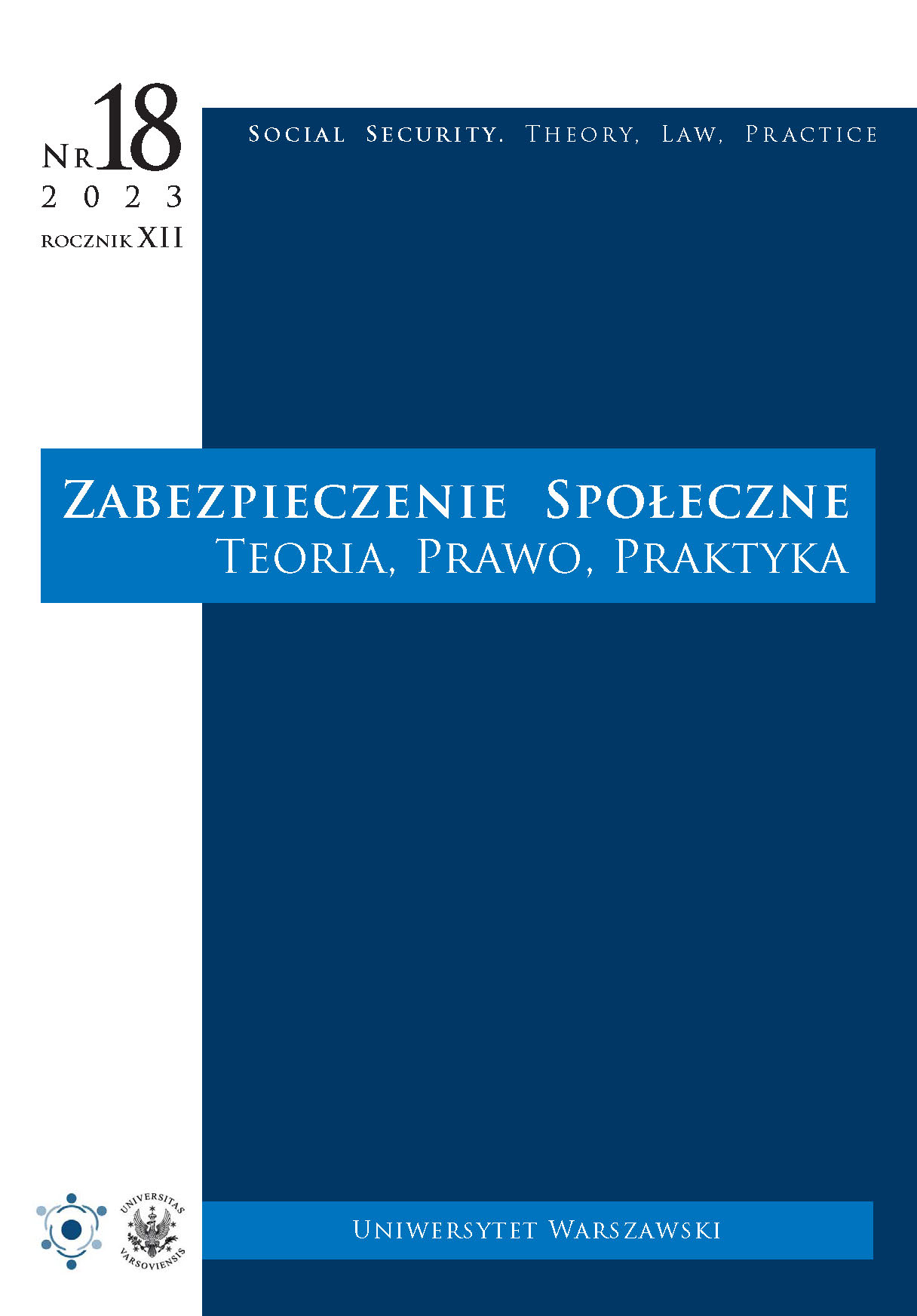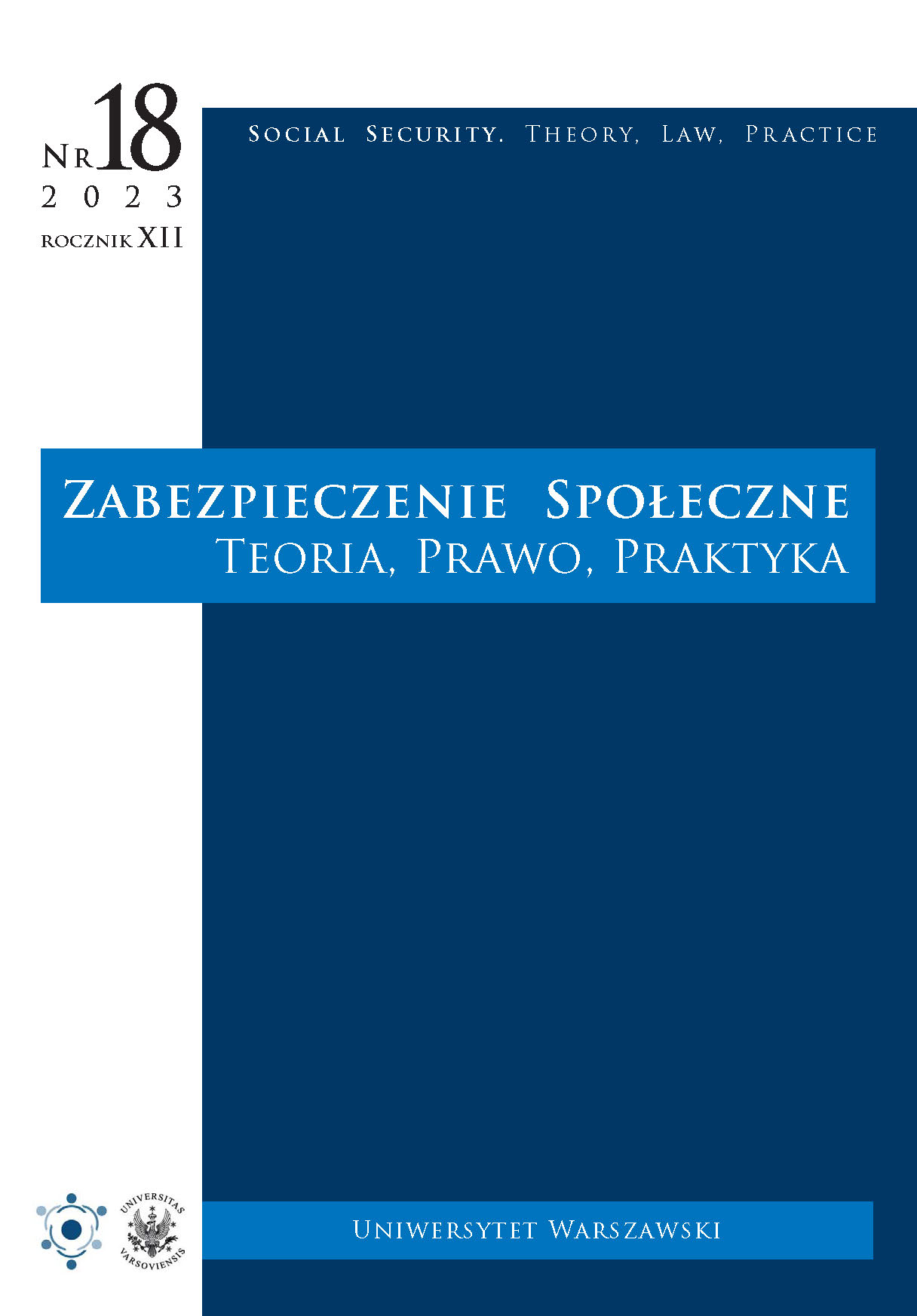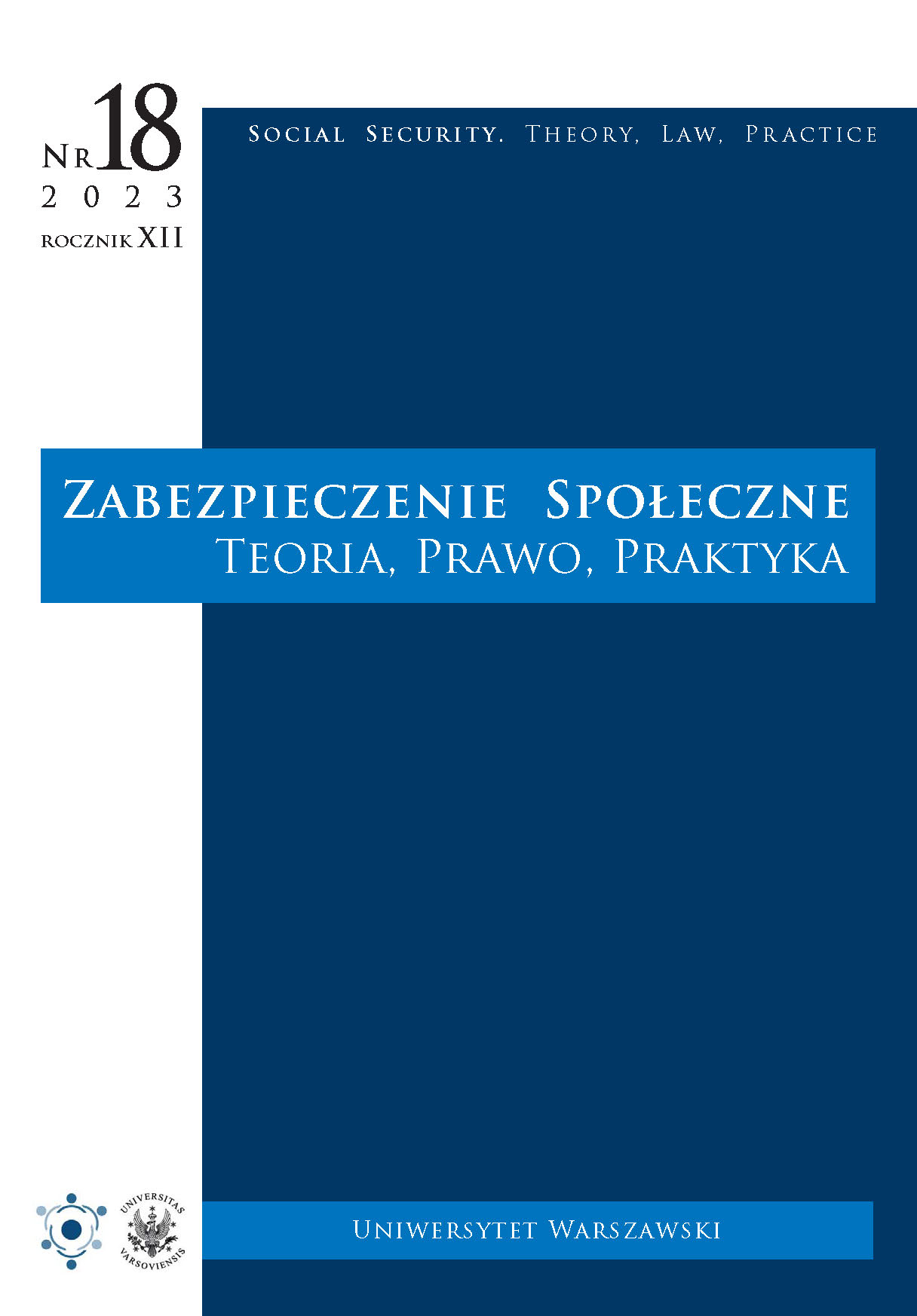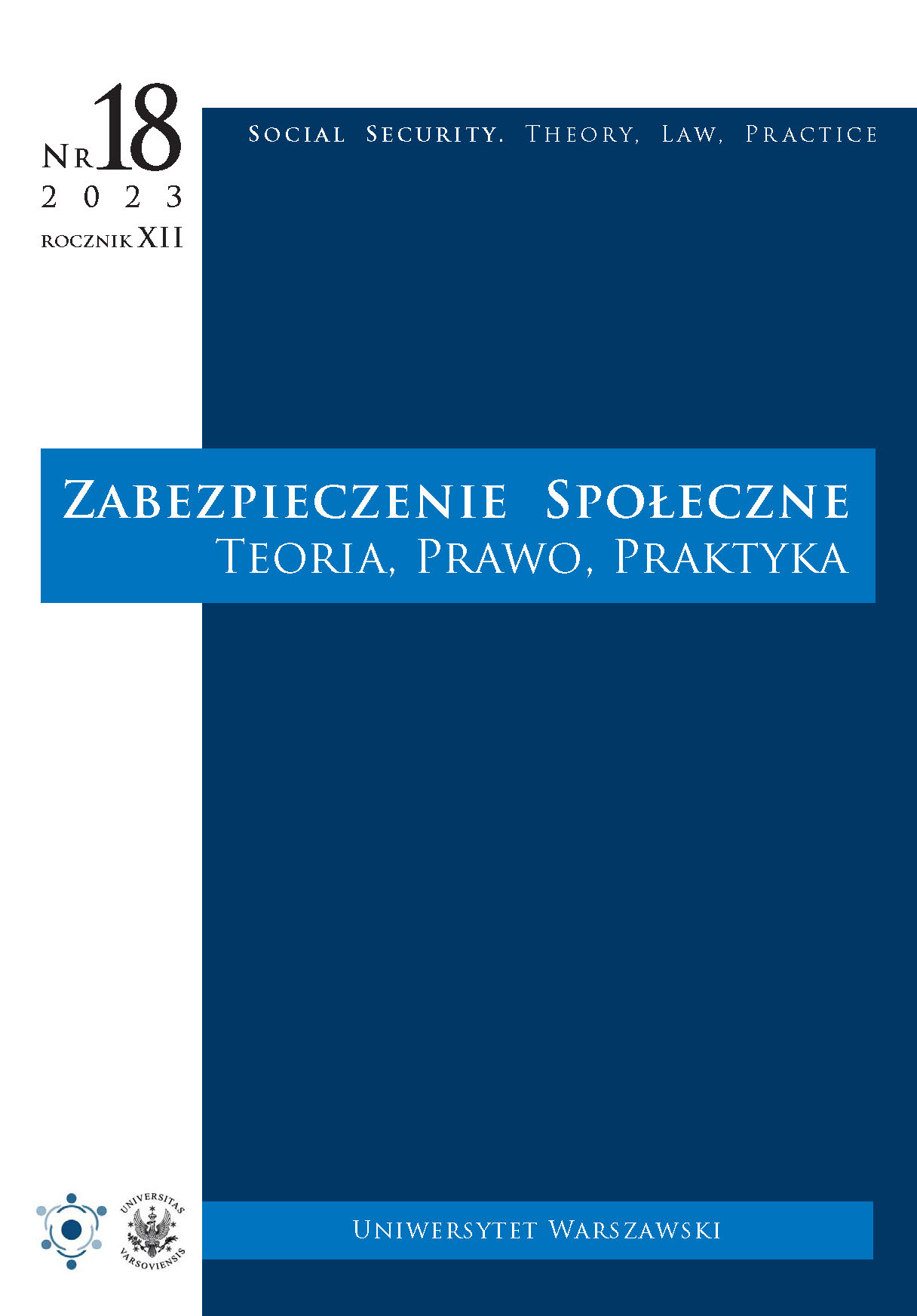No. 18 (2023): Social Security. Theory. Law. Practice

In the eighteenth issue of the journal Social Security. Theory, Law, Practice we turn our attention to the labor market and the issue of remote work. The advantages of remote work were highlighted by the COVID-19 pandemic and its negative effects. Many companies have moved the execution of work outside the offi ce. The author of the fi rst article analyses the use of this mode of work in Poland as well as in the European context, with particular attention paid to the period of the COVID-19 pandemic. Consideration of remote work in the context of the pandemic continues in the second article. According to the author of this text, the pandemic became a catalyst for the process of introducing fl exible forms of work organization to a greater extent. However, he points out that this mode of work brings not only benefi ts, but also various risks. Therefore, it is important to recognize these risks and incorporate measures to eliminate them. The subject of the third article is also related to the labor market. Its author analyses the situation of vocational school graduates in the labor market. She also indicates the directions of actions to improve their employability, which is determined, among other things, by the relatively low level of quality of education in vocational schools in the context of labor market needs. She stresses the need for systemic solutions regarding the evaluation of the quality of education in vocational schools, e.g. following the example of the Polish Accreditation Commission in the field higher education. The next text relates to the area of family policy. It attempts to identify the main factors of change in this part of family policy, which relates to the development of institutional care for a young child in the last thirty years. The second part of the article, based on the results of empirical research, presents the opinions of parents who use the services of nurseries compared to other forms of care for a young child. It concludes by pointing out solutions that parents believe should be implemented to support families in carrying out care tasks. A very timely topic is addressed in the next article. Its authors analyse potential directions and examples of the application of artifi cial intelligence (AI) in social security. They explain the essence of this disruptive technology and review the possibilities and achievements of its implementation, as well as the limitations and challenges for society. The article concludes with considerations on regulating how AI is designed and operated. In the International Affairs section, the author introduces readers to the pension system operating in Japan. Although a far cry from Poland, like most societies in developed countries, Japan is facing the negative effects of demographic processes, mainly aging and low fertility rates. At the beginning of the fi rst decade of the 21st century, the country was the fi rst and only one in the world to enter the most advanced phase of the population aging process, called the „Hyper Aged Society Phase” (Hyper Aged Society Phase). Therefore, it is worth learning how Japan is dealing with these phenomena in the context of our activities related to the aging of the Polish population.








